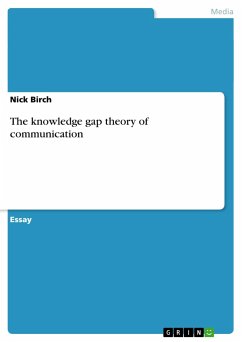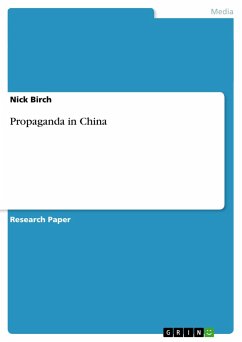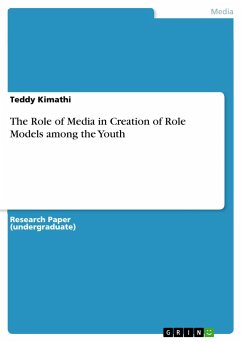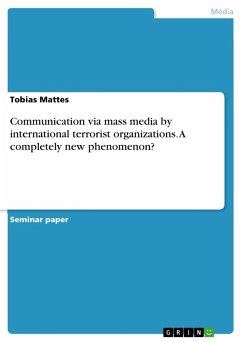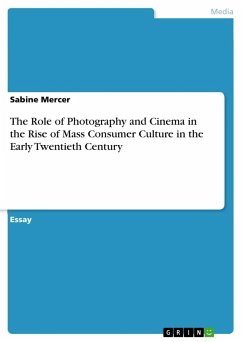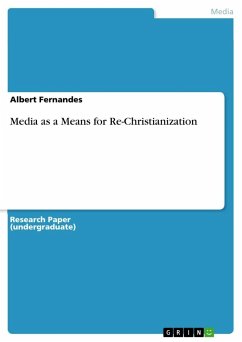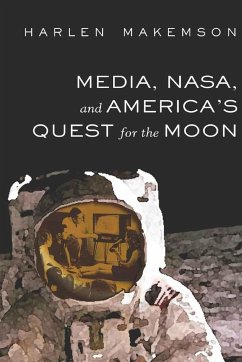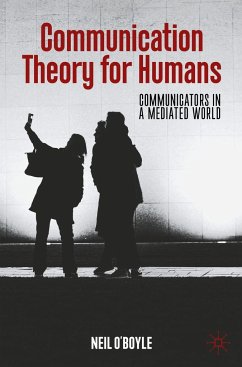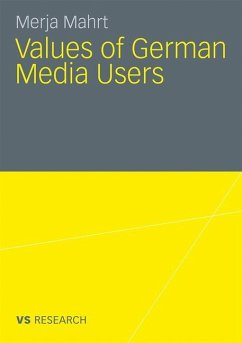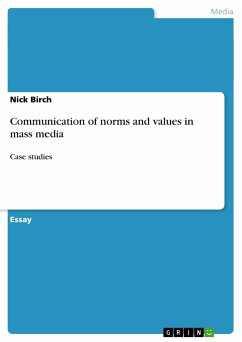
Communication of norms and values in mass media
Case studies

PAYBACK Punkte
0 °P sammeln!
Essay from the year 2013 in the subject Communications - Mass Media, grade: 1.3, Central Queensland University, course: Applied Communication Arts, language: English, abstract: Governments, businesses and citizens across the world are only beginning to understand the profound implications of living in a hyper-connected world. Organisations operating across borders must recognise that the users of that information, and their governments, often have different cultural norms, values and expectations. These norms are changing as digital natives come of age and challenge old orthodoxies. Digital te...
Essay from the year 2013 in the subject Communications - Mass Media, grade: 1.3, Central Queensland University, course: Applied Communication Arts, language: English, abstract: Governments, businesses and citizens across the world are only beginning to understand the profound implications of living in a hyper-connected world. Organisations operating across borders must recognise that the users of that information, and their governments, often have different cultural norms, values and expectations. These norms are changing as digital natives come of age and challenge old orthodoxies. Digital technologies continue to evolve, making it ever more difficult for anyone to control or regulate the manner and flow of information (World Economic Forum, 2013).According to an International Media Concentration Research Project, led by Professor Eli Noam of Columbia University, 'Australian newspaper circulation was the most concentrated of 26 countries surveyed, and among the most concentratedin the democratic world' (Flew, 2013). Rupert Murdoch's News Corp Australia, the Fairfax Media and the Australian Broadcasting Corporation (ABC) are all examples of mass media communicating systems of norms and values. The first two accounted for 86% of newspaper sales in Australia in 2011, as compared to 54% for the top two newspaper owners in the United Kingdom and as low as 14% for the top two in the United States (Flew, 2013). News Corp and Fairfax have been seen to express a response to political climates according to their owners' rather singular perspectives. Allegations of news media bias in Australia during the past several years are nothing new, in each case these players are after a different goal (Tucker, 2013).




